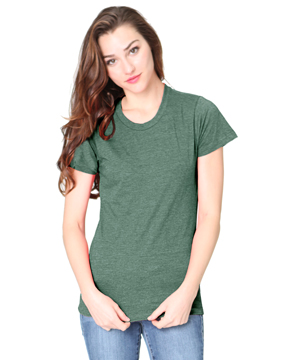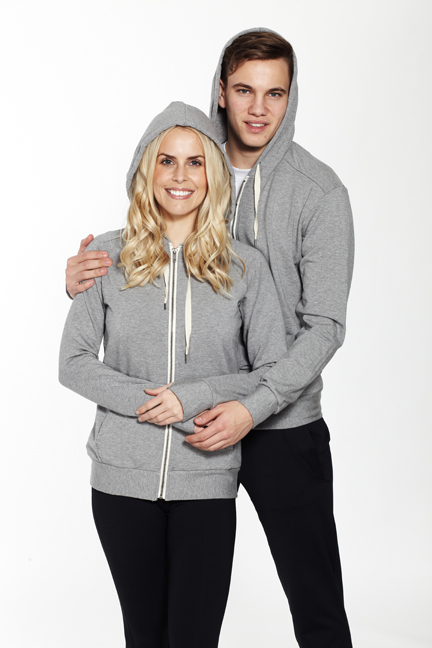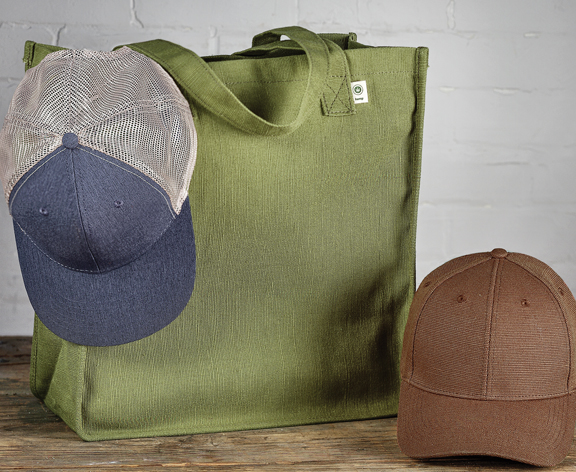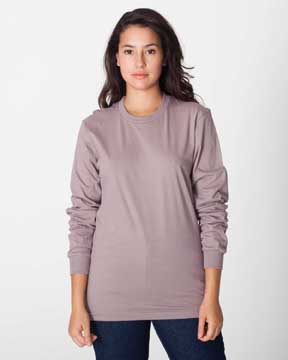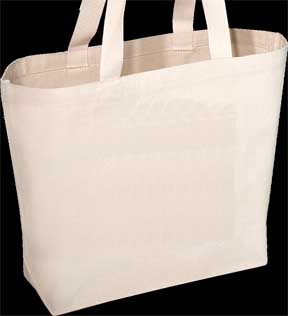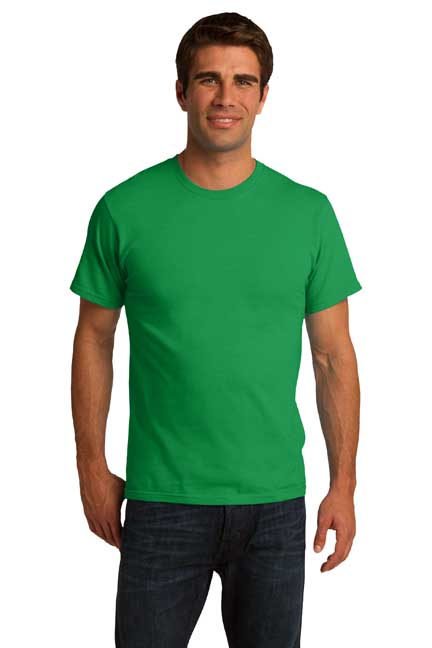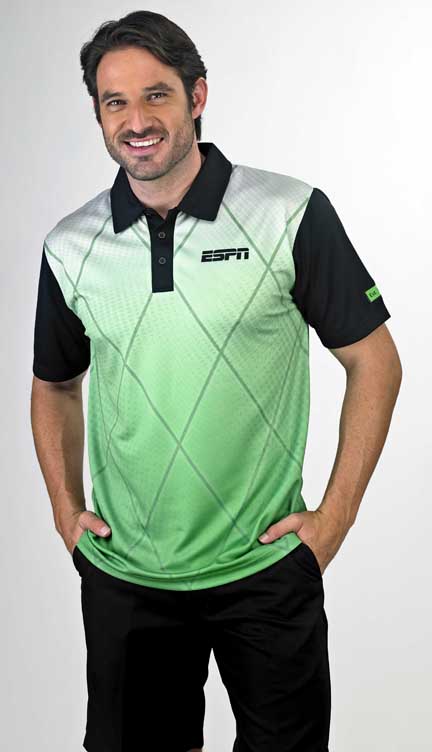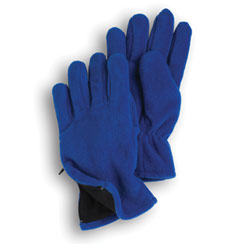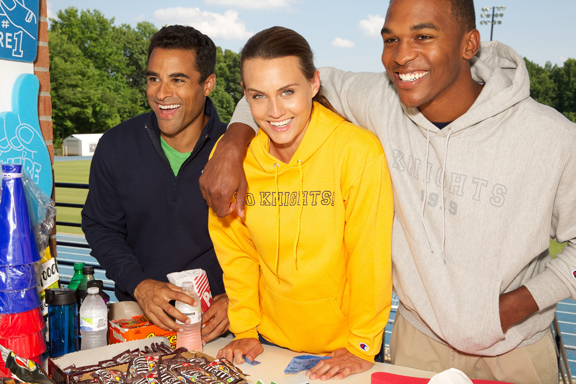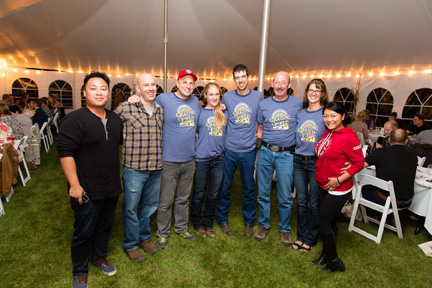Material Matters
Promotions featuring eco-friendly apparel appeal to today’s business buyers
If you’re pitching green products to clients as if green is its own category, it may be time to rethink your approach.
“Today’s buyers, in particular Millennials, are too smart for that,” says Danny Braunstein, vice president of sales and business development for Canadian distributor Talbot Marketing (UPIC: TALB0001). “They want to purchase locally sourced and eco-friendly products because it makes sense and they legitimately care about the environment. Treating green products as if they are a category like writing instruments is a mistake.”
Distributors can bring value to clients by keeping the environment in mind with every promotional campaign. “The earth is a closed, living system with finite resources that must be protected. A radical paradigm shift is necessary in order to heal the health of our planet. Choosing organic and sustainable apparel and accessories is among one of the many things we can do to co-create a thriving planet,” says Kriya Stevens, brand manager at supplier econscious (UPIC: Econ). “Collectively, our choices act as a vote for more responsible agricultural practices and the kind of world we want to leave for future generations,” she adds.
Whether you’re creating promotions using apparel and accessories made from recycled plastic bottles (RPET), organic cotton, hemp, bamboo or any other recycled or earth-friendly material, you’re not just being green, you are aligning your clients with what many of today’s business customers want—to show that their brand respects the environment.
Clients Approve Of These Eco-Friendly Apparel and Accessories
Not only is this soft t-shirt made in the U.S., it’s also made of 50-percent organic cotton and 50-percent recycled polyester made from plastic bottles (RPET).
Royal Apparel UPIC: Royal992 wwwroyalapparel.net
Rayon bamboo stretch fleecewear is made from 70-percent rayon bamboo, 25-percent cotton and five-percent spandex. Softer than the softest cotton, bamboo contains a natural agent that prevents the growth of bacteria, helping to keep you odor-free. Bamboo is grown without pesticides or chemicals, requires little water and is 100-percent biodegradable. It has been found to show no reduction in its antibacterial nature even after 50 washes.
Brandwear UPIC: brndwear www.brandwear.ca
The products in this hemp collection—a hemp mesh trucker hat, a hemp baseball cap and a hemp market tote—are made from 55-percent hemp and 45-percent organic cotton. The mesh in the trucker hat is made from 100-percent recycled polyester.
econscious UPIC: Econ www.econscious.com
The long-sleeve version of American Apparel’s best-selling t-shirt is made from 100-percent organic fine jersey cotton. It is unisex and features a durable rib neckband and superior screen printing results. Choose from five colors including black, white, natural, galaxy and cinder.
alphabroder UPIC: BRODER www.alphabroder.com
Choose this convention tote for its high-quality recyclable, eco-friendly, biodegradable, 10-ounce, 100-percent cotton canvas with recycled content. It has a large imprint area on both sides that’s perfect for logos or graphics. Choose from five different handle colors including black, red, blue and natural.
Indicusbag UPIC: INDICUS www.indicusbag.com
This soft, smooth t-shirt is crafted from five-ounce, 100-percent organic ring-spun cotton and has a removable tag for comfort. It’s available in a variety of colors and in adult sizes S - 4XL.
SanMar UPIC: SNMR www.sanmar.com
This polo shirt is made with 25-percent recycled plastic bottles, is snag free and can be decorated with partial or full sublimation, direct embroidery or screen printing. You can choose color placement, and orders can be mixed, using men’s and women’s sizing up to 5X.
HTT Headwear and Apparel UPIC: HTT0002 www.httapparel.com
These polyester-fiber fleece zipper gloves are made from 100-percent recycled plastic bottles. Available in black, maroon, royal blue and hunter green, they can be easily embroidered in the two-inch- square maximum imprint area.
Wolfmark UPIC: WOLFMARK www.wolfmarkties.com
The Champion® Double Dry Eco® Pullover Hood incorporates recycled polyester fibers from plastic bottles, making this nine-ounce, 50/50 cotton-polyester fleece comfortable, durable and environmentally conscious. Other features include a two-ply hood with a dyed-to-match drawcord.
Hanes/Champion UPIC: HBIINC www.hanesbullseye.com
Eco-Friendly (Yet Controversial) Hemp Comes Home
While hemp is a variety of the cannabis plant, it is not the same thing as marijuana. Hemp contains 0.3 percent or less of the psychoactive component THC. (By contrast, marijuana plants contain five to 20 percent THC.) Even though you can’t get high from hemp, U.S. drug laws—greatly influenced by propaganda campaigns developed by financial tycoons whose holdings in plastics, oil and paper were threatened by the wide-ranging uses of industrial hemp—doomed the production of hemp with high taxes starting in 1937. In the 1950s, the Federal Bureau of Narcotics lumped industrial hemp with marijuana and banned its production. While the U.S. couldn’t produce hemp, it could legally import hemp products made in other countries such as China, Romania, Hungary and India, as long as the products contained no THC.
Compared to cotton, hemp is much more eco-friendly to produce, growing in a variety of climates and soil types and using only half the water of cotton and requiring no pesticides or herbicides. A provision in the 2014 farm bill signed by President Obama removed hemp grown for research purposes from the federal Controlled Substances Act, leading the way for the farmers to import hemp seeds and begin limited cultivation here at home. In 2015, a bipartisan group of U.S. senators introduced the Industrial Hemp Farming Act of 2015, which would allow American farmers to produce and cultivate industrial hemp. The bill would remove hemp from the controlled substances list as long as it contained no more than 0.3 percent THC. You can follow the bill’s progress at www.govtrack.us.
Five Fascinating Facts About Hemp
1. It used to be illegal not to produce hemp in the American Colonies because of its importance in making sails and ropes for ships.
2. The word canvas is rooted in the word cannabis.
3. Thomas Jefferson drafted The Declaration of Independence on hemp paper.
4. Hemp is legal to grow in 30 industrialized countries, including Canada.
5. Fabrics made of at least one-half hemp block the sun's UV rays more effectively than other fabrics.
Source: North American Industrial Hemp Council, Inc.
Case Study
Staying Local
Every fall, Dairy Farmers of Manitoba hosts an exclusive “farm to fork” event on a dairy farm called “Grazing in the Field.” After meeting the farm family and touring the barn, guests enjoy a locally sourced seven-course dining experience celebrating Manitoba agriculture and food processing. At the 2015 event, in keeping with the “stay local” theme, the organization tasked Talbot Marketing (UPIC: TALB0001) with finding a high-quality, locally produced promotional apparel item for guests. Talbot partnered with Redwood Classics Apparel to provide a locally manufactured, premium promotional t-shirt that was sure to stay in recipients’ wardrobe rotations for years to come. “As the longest-running promotional products company in Canada, it has always been a mandate of ours to support local—even before it was fashionable. It really just makes sense from an economic and environmental standpoint,” says Danny Braunstein, Talbot Marketing’s vice president of sales and business development.


